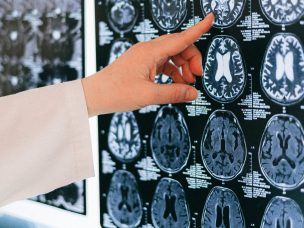Dementia
Lower Risk for MCI, Dementia Seen With Cognitively Stimulating Occupations
Participants in a high versus low routine task intensity group had higher risk for MCI and dementia Individuals with a history of cognitively stimulating occupations from ages 30 to 65 years have lower risk for mild cognitive impairment (MCI) and dementia in later life, according to a study published online April 17 in Neurology. Trine H....
Higher Pancreatic Fat Percentage Linked to Lower Cognition in Men
Higher pancreatic fat linked to lower cognition and brain volumes in middle-aged men at high risk for Alzheimer disease Higher pancreatic fat percentage is associated with lower cognition and brain volumes in middle-aged men at high risk for Alzheimer disease, according to a study published online Feb. 27 in Obesity. Sapir Golan Shekhtman, from Tel Aviv...
Patients With Dementia Less Likely to Receive Intensive Care After Hospital Transfer
Authors say future work should focus on determining if transfers are needed Patients with Alzheimer disease and other related dementias (ADRD) are less likely to receive intensive care unit admission or procedures after transfer from an emergency department to a tertiary care hospital, according to a study recently published in Alzheimer’s & Dementia: Diagnosis, Assessment &...
Radon Exposure Linked to CHIP Risk for Women With Ischemic Stroke
Higher estimated risk for clonal hematopoiesis of indeterminate potential seen for those with ischemic but not hemorrhagic stroke Radon exposure is associated with an increased risk for clonal hematopoiesis of indeterminate potential (CHIP) among postmenopausal women with ischemic stroke, according to a study published online Jan. 3 in Neurology. Kurtis M. Anthony, M.P.H., from the Gillings...
Adult ADHD May Increase Dementia Risk: Exploring the Association
Recent research suggests that adults with attention-deficit/hyperactivity disorder may have a higher risk of developing dementia. A recent cohort study emphasizes the need for clinicians to monitor symptoms of attention-deficit/hyperactivity disorder in older patients. Adult attention-deficit/hyperactivity disorder (ADHD) is found to be associated with an increased risk of dementia. Dementia occurred in a larger percentage...
Antipsychotic Use Increased for Seniors With Alzheimer, Related Dementias
Among patients with ADRD receiving care from a home health agency, antipsychotic use was tied to less improvement in activities of daily living. Antipsychotics are more often used by older adults receiving home health care (HHC) services with Alzheimer disease and related dementias (ADRD) versus those without ADRD, and their use is associated with worse...
Dementia vs. Alzheimer’s: Understanding the Difference
Did you know that Alzheimer’s disease and dementia are actually different? Many individuals mistakenly use these terms interchangeably, leading to confusion. Dementia encompasses symptoms that affect memory, daily tasks and cognitive abilities. On the other hand, Alzheimer’s is a specific type of dementia. People must understand that Alzheimer’s disease and dementia are different. Your diagnosis...
Activities for Dementia Patients: Enhancing Wellbeing
Dementia’s progression is heartbreaking for loved ones because it can slowly take away the memories and abilities that made a person the individual they knew and loved. However, dementia doesn’t define a person or the moments they can enjoy. Creating activities for dementia patients can help enrich their lives by enhancing their sense of self....
Dementia in Neuromyelitis Optica Spectrum Disorder and Multiple Sclerosis
Medically reviewed by Dr. Kimberly Langdon Cull, M.D. on August 5, 2023 This study found that patients with multiple sclerosis and neuromyelitis optica spectrum disorder have an increased risk of all forms of dementia. Both neuromyelitis optica spectrum disorder (NMOSD) and multiple sclerosis (MS) patients exhibit cognitive impairment; however, the risk of dementia in these...
More Medical News














